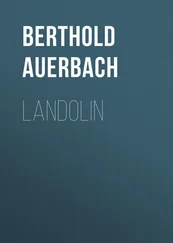Berthold Auerbach - On the Heights - A Novel
Здесь есть возможность читать онлайн «Berthold Auerbach - On the Heights - A Novel» — ознакомительный отрывок электронной книги совершенно бесплатно, а после прочтения отрывка купить полную версию. В некоторых случаях можно слушать аудио, скачать через торрент в формате fb2 и присутствует краткое содержание. ISBN: , Жанр: foreign_antique, foreign_prose, на английском языке. Описание произведения, (предисловие) а так же отзывы посетителей доступны на портале библиотеки ЛибКат.
- Название:On the Heights: A Novel
- Автор:
- Жанр:
- Год:неизвестен
- ISBN:http://www.gutenberg.org/ebooks/33294
- Рейтинг книги:4 / 5. Голосов: 1
-
Избранное:Добавить в избранное
- Отзывы:
-
Ваша оценка:
- 80
- 1
- 2
- 3
- 4
- 5
On the Heights: A Novel: краткое содержание, описание и аннотация
Предлагаем к чтению аннотацию, описание, краткое содержание или предисловие (зависит от того, что написал сам автор книги «On the Heights: A Novel»). Если вы не нашли необходимую информацию о книге — напишите в комментариях, мы постараемся отыскать её.
On the Heights: A Novel — читать онлайн ознакомительный отрывок
Ниже представлен текст книги, разбитый по страницам. Система сохранения места последней прочитанной страницы, позволяет с удобством читать онлайн бесплатно книгу «On the Heights: A Novel», без необходимости каждый раз заново искать на чём Вы остановились. Поставьте закладку, и сможете в любой момент перейти на страницу, на которой закончили чтение.
Интервал:
Закладка:
"Yes; but who forbids you?"
"The law of the state. It has ordered this convent to be closed and forbids its taking any more young nuns."
"And does the law say that?"
"Yes."
"The king shall not allow it."
Irma spoke so loudly that her words were echoed back from the vaulted ceiling of the cell.
Emma's glance was fastened on Irma-if it only could be brought about!
The two maidens had no time to exchange a word on the subject, for, at that moment, the abbess sent for them.
The abbess addressed Irma, just as if she had overheard the last words of the latter. With gentle voice, but positive manner, she complained of the tyranny of the free-thinkers-whom she did not judge, but simply pitied-and maintained that the attempt to destroy ancient and holy institutions was revolting.
Irma's countenance glowed with excitement. She again said that the law must be repealed, and that she would exert all her influence to bring about that end. She offered to write to the king at once. The abbess gladly accepted the proffered service and Irma wrote:
" Your Majesty : I write to you from the convent, but I am not a nun. I believe my talent does not lie in that way. But what laws are these that forbid a maiden from taking the eternal vow? Is that freedom? Is it justice? What is it? Your Majesty will, I trust, pardon my agitation. I am writing with convent ink on convent paper, and it is not the first time that such ink and such paper have been used in the service of freedom.
"Is it possible that one set of human beings can forbid others to live together in seclusion?
"Quacks cannot create life or happiness; should they, therefore, be allowed to forbid unhappiness from effecting its own cure?
"Your Majesty's great mind cannot suffer such barbarism, and it is barbarous, although hedged about by culture.
"I am aware, Your Majesty, that I have not yet made my meaning clear. I shall endeavor to do so.
"I am here in the convent.
"Emma, the woman whom I love above all others-I believe I have already spoken of her to Your Majesty-wishes to take the veil. From her point of view, she is in the right. Dogs will go mad, although the dog-tax be paid. A mad dog killed her affianced and she now desires to renounce the world. Who dare prevent it? And yet the law of the state commands that this convent shall die out, and forbids its receiving nuns.
"Your Majesty dare not permit this. Your eye takes in all at a glance; your life is the nation's history. You must teach these journeymen to be greater-minded than they now are. They must abolish this law; indeed, they must.
"Pardon my language. Your Majesty; but I cannot help myself. I feel as if I were your deputy. I feel that your great mind resents such pettiness as an insult.
"I hope to see Your Majesty soon again, and, meanwhile, send my most respectful greetings.
"Irma von Wildenort."Without being observed, Irma inclosed the four-petaled clover-leaf with the letter.
While Irma sat in the boat that took her back to the shore, she was filled with pride. She felt that she had instigated, if not accomplished, a beautiful and noble act in the service of freedom and was determined that it should be carried out.
The old boatman was glad to see her again. He rowed lustily, but did not speak a word. Now and then, he would smile to himself, as if happy in the thought that he was carrying a young soul away from the realm of shadows.
In the distance there was a skiff and, in it, a man clad in a green hunting dress. He waved his hat and bowed.
Absorbed in thought, Irma was gazing into the lake, when her maid drew her attention to the other boat.
Irma started.
"Is it not the king?"
Thinking that he had not yet been observed, the hunter fired off his gun, the report of which was echoed again and again from the hills. He then waved his hat once more. With trembling hand, Irma waved her white handkerchief as a token of recognition.
The skiff approached. Irma's expression rapidly changed from one of joy to that of disappointment.
It was not the king. It was Baron Schoning who greeted her.
He sprang into the boat, kissed her trembling hand and told her how happy he was to meet her there.
They alighted. The baron offered his arm to Irma and they walked along the bank, the maid going before. In the distance, Irma could see the lackey who, on the previous day, had been speaking to hers. Had not the servant said that his master had been waiting here for a long time? Had not Baron Schoning, before this, been open in his attentions to her? His words soon relieved her of all doubt on that score.
"We are alone here, in the presence only of the mountains, the lake and the heavens. Dearest Countess! May I speak of something that lies near my heart and which I have for a long while desired to tell you?"
She silently nodded assent.
"Well then, permit me to tell you that the court is not the right place for you."
"I am not quite sure that I shall return there; but why do you think me out of place there?"
"Because there is something in you which will always prevent you from feeling at home there. You are surprised to hear me, the jester, the court warbler, speak thus. I know very well I bear that title; but believe me, Countess, while they imagine they are playing with me, I am amusing myself at their expense. You, Countess, will never feel at home at court. You do not accept that life and its customs, as fixed and settled. You interpret it according to your own peculiar views; your mind cannot wear a uniform; your soul utters its deepest feelings in its own dialect, and when your utterances get abroad in the liveried world, they find it exceedingly original, but strange and-no one knows it better than I-you have not, and never will have aught in common with those who surround you."
"I should not have believed that you could thus look into my heart; but I thank you."
"I am not looking into your heart; I live in it. Oh, Countess! Oh! thou child-like and all-loving heart, tremble not! Suffer me to clasp this hand in mine, while I tell you that I, too, am a stranger there, and have resolved to retire from court and live for myself on yonder patrimonial estate of mine. Irma, will you render my life a thousand-fold happier than it can otherwise be? Will you be my wife?"
It was long before Irma could answer him. At last she said:
"My friend-yes, my friend-on yonder island there lives a friend of mine who is dead, both to herself and me. Fate deals kindly with me and sends me another in her stead. I thank you-but-I am so confused-perhaps more than- But look, dear baron, at the little cottage half-way up the mountain. I would be content to live there-to grow my cabbages, milk my goats, plant my hemp, make my clothes-and could be happy, desiring nothing, forgetting the world and forgotten by it."
"You jest, dear Countess; you are creating an idea whose bright colors will soon grow dim."
"I do not jest. I could live alone while laboring for my daily bread, but not as the mistress of a castle and surrounded by the trifles and frippery of the fashionable world. To dress for the mere sake of seeing one's self in the glass, is not to my taste. In yonder cottage, I could live without a mirror. I need not look at myself, nor need another look at me; but if I am to live with the world, I must be wholly with it; at the reigning center, in the metropolis, or traveling. I must have all or nothing. Nothing else will make me happy. Nothing half-and-half or intermediate will satisfy me."
Irma's tone was so determined that the baron saw how thoroughly in earnest she was, and that her words meant more than mere caprice or sport.
"I must either subject myself to the world," said she, "or, despising it, put it beneath me. I must either be perfectly indifferent and regardless of the impression I produce upon others, or else afraid of every glance, even my own."
Читать дальшеИнтервал:
Закладка:
Похожие книги на «On the Heights: A Novel»
Представляем Вашему вниманию похожие книги на «On the Heights: A Novel» списком для выбора. Мы отобрали схожую по названию и смыслу литературу в надежде предоставить читателям больше вариантов отыскать новые, интересные, ещё непрочитанные произведения.
Обсуждение, отзывы о книге «On the Heights: A Novel» и просто собственные мнения читателей. Оставьте ваши комментарии, напишите, что Вы думаете о произведении, его смысле или главных героях. Укажите что конкретно понравилось, а что нет, и почему Вы так считаете.












